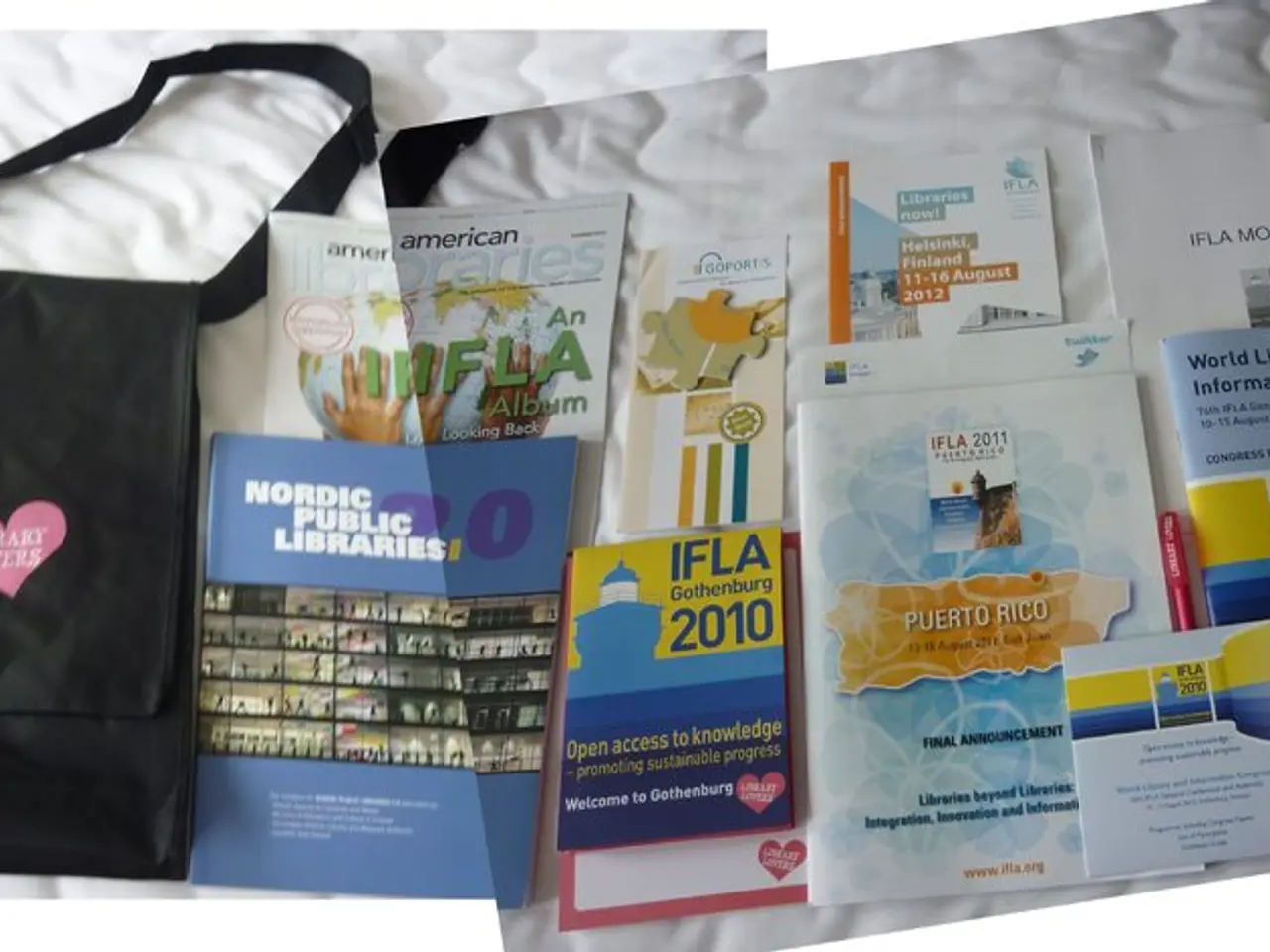Hitler's inaugural publication of the pamphlet titled "Mein Kampf" transpired on the 18th of July, 1925
Adolf Hitler's book, "Mein Kampf," published in 1925 and 1927, holds profound historical significance as the ideological foundation and political manifesto of National Socialism (Nazism) in Germany. Originally written during Hitler's imprisonment after the failed Beer Hall Putsch of 1923, the book became the "bible" of Nazi ideology and directly influenced the rise of Hitler and the Nazi Party to power.
"Mein Kampf" combines autobiographical elements with a detailed exposition of Hitler's worldview, including virulent antisemitism, the concept of Aryan racial supremacy, the demand for Lebensraum, a rejection of parliamentary democracy, and the call for an absolute dictatorial leadership under a single Führer. The book also blames Germany's post-World War I collapse and the Versailles Treaty, calling for revenge on France and Marxists.
Initially, "Mein Kampf" sold poorly and was described as "unreadable." However, its fate changed dramatically after Hitler's rise to power in 1933. The book was widely promoted and distributed by the Nazi regime, becoming mandatory reading in schools and a common wedding gift, with millions of copies circulated by the end of World War II.
The impact of "Mein Kampf" on the rise of National Socialism was profound. It served as a blueprint for Nazi policies and political agendas, providing the ideological justification for racial laws, antisemitic persecution, and aggressive expansionism. The book helped mainstream Nazi ideology, embedding dangerously racist and ultranationalist ideas in German society. It laid the groundwork for the Holocaust and the catastrophic global conflict of World War II by articulating the worldview that motivated these policies.
Post-World War II, "Mein Kampf" was banned in many countries due to its hateful content. However, a new edition, known as the "critical edition," was published by historians from the Institute for Contemporary History in Munich on January 8, 2016. This edition aims to counteract the danger of the manifesto being disseminated uncommented and freely accessible, fueling far-right tendencies.
The critical edition presents historical facts, explains context, reveals intellectual predecessors, and contrasts Hitler's ideas with modern research. In an era where memory culture must defend itself against the normalization and relativization of the Nazi past, these books serve as a crucial and enlightening read, reminding us of our duty to remember.
The copyright on "Mein Kampf" expired on December 31, 2015, and a digital version of the critical edition has been available for free on the internet since July 2022. Sven Felix Kellerhoff, a journalist and non-fiction author, published a book titled "Mein Kampf - The Career of a German Book" in 2015. Kellerhoff's book provides a clear and fact-rich account of the history of "Mein Kampf," debunking myths and legends surrounding Hitler's manifesto and exposing him as a forger of his own biography.
"Mein Kampf" remains the best-selling book in the German language to this day, a testament to its historical and cultural impact. The critical edition offers a new perspective on this controversial text, shedding light on the ideological roots of Nazism and serving as a reminder of the destructive power of racist and totalitarian ideologies.
- The critical edition of "Mein Kampf," published in 2016 by historians, aims to counteract the dangerous dissemination of the manifesto and promote awareness about the ideological roots of Nazism.
- Initially written during Adolf Hitler's imprisonment after a failed attempt to seize power (the Beer Hall Putsch), "Mein Kampf" became the ideological foundation of Nazi policies and political agendas.
- Post-World War II, the book was banned in many countries due to its hateful content, but a new digital version of the critical edition is available for free online since July 2022.
- Sven Felix Kellerhoff, a journalist and non-fiction author, published a book titled "Mein Kampf - The Career of a German Book" in 2015, debunking myths and legends surrounding Hitler's manifesto and exposing him as a forger of his own biography.
- Politically, "Mein Kampf" served as the "bible" of Nazi ideology, promoting virulent antisemitism, Aryan racial supremacy, and aggressive expansionism, leading to the rise of Hitler and the Nazi Party and eventually paving the way for the catastrophic global conflict of World War II.







